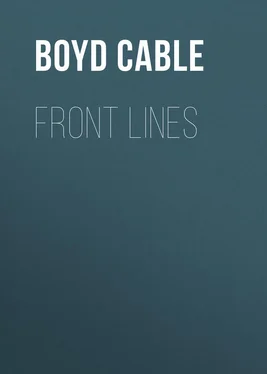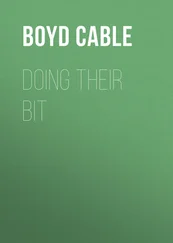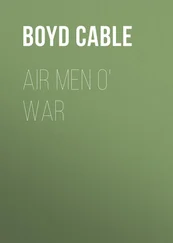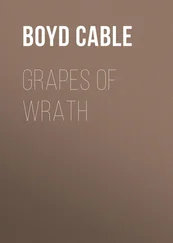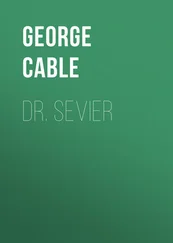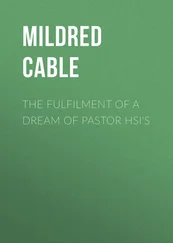Boyd Cable - Front Lines
Здесь есть возможность читать онлайн «Boyd Cable - Front Lines» — ознакомительный отрывок электронной книги совершенно бесплатно, а после прочтения отрывка купить полную версию. В некоторых случаях можно слушать аудио, скачать через торрент в формате fb2 и присутствует краткое содержание. Жанр: foreign_antique, foreign_prose, на английском языке. Описание произведения, (предисловие) а так же отзывы посетителей доступны на портале библиотеки ЛибКат.
- Название:Front Lines
- Автор:
- Жанр:
- Год:неизвестен
- ISBN:нет данных
- Рейтинг книги:3 / 5. Голосов: 1
-
Избранное:Добавить в избранное
- Отзывы:
-
Ваша оценка:
- 60
- 1
- 2
- 3
- 4
- 5
Front Lines: краткое содержание, описание и аннотация
Предлагаем к чтению аннотацию, описание, краткое содержание или предисловие (зависит от того, что написал сам автор книги «Front Lines»). Если вы не нашли необходимую информацию о книге — напишите в комментариях, мы постараемся отыскать её.
Front Lines — читать онлайн ознакомительный отрывок
Ниже представлен текст книги, разбитый по страницам. Система сохранения места последней прочитанной страницы, позволяет с удобством читать онлайн бесплатно книгу «Front Lines», без необходимости каждый раз заново искать на чём Вы остановились. Поставьте закладку, и сможете в любой момент перейти на страницу, на которой закончили чтение.
Интервал:
Закладка:
“Both dead, sir,” said Studd, and the Lieutenant nodded and heaved a little sigh of relief. “And I think that first was a dead ‘un too.”
“Yes,” whispered the Lieutenant. “Looked natural and listening hard. Remember now, though, he was bareheaded. Dead all right. Come on.”
They crept out past the two dead men, and, abating no fraction of their caution, moved noiselessly forward again. They passed many more dead in the next score of yards, dead twisted and contorted to every possible and impossible attitude of unmistakable death and uncannily life-like postures, and came at last to scattered fragments and loose hanging strands of barbed-wire entanglements. Here, according to previous arrangements, Studd – ex-poacher of civilian days and expert scout of the battalion – moved ahead and led the way. Broken strands of wire he lifted with gingerly delicate touch and laid aside. Fixed ones he raised, rolled silently under and held up for the Lieutenant to pass. Taut ones he grasped in one hand, slid the jaws of his wire-nippers over and cut silently between his left-hand fingers, so that the fingers still gripped the severed ends, released the ends carefully, one hand to each, and squirmed through the gap.
There was very little uncut wire, but the stealthy movements took time, and half an hour had passed from first wire to last and to the moment when the Lieutenant, in imitation of the figure before him, flattened his body close to the muddy ground and lay still and listening. For five long minutes they lay, and then Studd twisted his head and shoulders back. “Nobody,” he whispered. “Just wait here a minute, sir.” He slipped back past the Lieutenant and almost immediately returned to his side. “I’ve cut the loose wires away,” he said. “Mark this spot and try’n hit it if we have to bolt quick. See – look for this,” and he lifted a bayoneted rifle lying beside them, and stabbed the bayonet down into the ground with the rifle butt standing up above the edge of the broken parapet.
“Cross the trench,” whispered the Lieutenant, “and along behind it. Safer there. Any sentry looking out forward?”
Studd vanished over the parapet and the Lieutenant squirmed after him. The trench was wide and broken-walled back and front, and both clambered up the other side and began to move along the far edge. In some places the trench narrowed and deepened, in others it widened and shallowed in tumbled shell-craters, in others again was almost obliterated in heaped and broken earth. The mist had closed down and thickened to a white-grey blanket, and the two moved more freely, standing on their feet and walking stooped and ready to drop at a sound. They went for a considerable distance without seeing a single German.
Studd halted suddenly on the edge of a trench which ran into the one they were following.
“Communication trench,” said the Lieutenant softly. “Doesn’t seem to be a soul in their front line.”
“No, sir,” said Studd, but there was a puzzled note in his voice.
“Is this their front line we’ve been moving along?” said the Lieutenant with sudden suspicion. “Those lights look further off than they ought.”
The dim lights certainly seemed to be far out on their left and a little behind them. A couple of rifles cracked faintly, and they heard a bullet sigh and whimper overhead. Closer and with sharper reports half a dozen rifles rap-rapped in answer – but the reports were still well out to their left and behind them.
“Those are German rifles behind us. We’ve left the front line,” said the Lieutenant with sudden conviction. “Struck slanting back. Been following a communication trench. Damn! ”
Studd without answering dropped suddenly to earth and without hesitation the Lieutenant dropped beside him and flattened down. A long silence, and the question trembling on his lips was broken by a hasty movement from Studd. “Quick, sir – back,” he said, and hurriedly wriggled back and into a shallow hole, the Lieutenant close after him.
There was no need of the question now. Plainly both could hear the squelch of feet, the rustle of clothes, the squeak and click of leather and equipment. Slowly, one by one, a line of men filed past their hiding-place, looming grey and shadowy through the mist, stumbling and slipping so close by that to the Lieutenant it seemed that only one downward glance from one passing figure was needed to discover them. Tumultuous thoughts raced. What should he do if they were discovered? Pass one quick word to Studd to lie still, and jump and run, trusting to draw pursuit after himself and give Studd a chance to escape and report? Or call Studd to run with him, and both chance a bolt back the way they came? The thick mist might help them, but the alarm would spread quickly to the front trench… Or should he snatch his revolver – he wished he hadn’t put it back in his holster – blaze off all his rounds, yell and make a row, rousing the German trench to fire and disclose the strength holding it? Could he risk movement enough to get his revolver clear? And all the time he was counting the figures that stumbled past – five … six … seven … eight… Thirty-four he counted and then, just as he was going to move, another lagging two. After that and a long pause he held hurried consultation with Studd.
“They’re moving up the way we came down,” he said. “We’re right off the front line. Must get back. Daren’t keep too close to this trench though. D’you think we can strike across and find the front line about where we crossed?”
“Think so, sir,” answered Studd. “Must work a bit left-handed.”
“Come on then. Keep close together,” and they moved off.
In three minutes the Lieutenant stopped with a smothered curse at the jar of wire caught against his shins. “’Ware wire,” he said, and both stooped and felt at it. “Nippers,” he said. “We must cut through.” He pulled his own nippers out and they started to cut a path. “ Tang! ” his nippers swinging free of a cut wire struck against another, and on the sound came a sharp word out of the mist ahead of them and apparently at their very feet a guttural question in unmistakable German. Horrified, the Lieutenant stood stiff frozen for a moment, turned sharp and fumbled a way back, his heart thumping and his nerves tingling in anticipation of another challenge or a sudden shot. But there was no further sound, and presently he and Studd were clear of the wire and hurrying as silently as they could away from the danger.
They stopped presently, and the Lieutenant crouched and peered about him. “Now where are we?” he said, and then, as he caught the sound of suppressed chuckling from Studd crouched beside him, “What’s the joke? I don’t see anything specially funny about this job.”
“I was thinkin’ of that Germ back there, sir,” said Studd, and giggled again. “About another two steps an’ we’d have fell fair on top of ’im. Bit of a surprise like for ’im, sir.”
The Lieutenant grinned a little himself. “Yes,” he said, “but no more surprise than I got when he sang out. Now what d’you think is our direction?”
Studd looked round him, and pointed promptly. The Lieutenant disagreed and thought the course lay nearly at right angles to Studd’s selection. He had his compass with him and examined it carefully. “This bit of their front line ran roughly north and south,” he said. “If we move west it must fetch us back on it. We must have twisted a bit coming out of that wire – but there’s west,” and he pointed again.
“I can’t figure it by compass, sir,” said Studd, “but here’s the way I reckon we came.” He scratched lines on the ground between them with the point of his wire nippers. “Here’s our line, and here’s theirs – running this way.”
Читать дальшеИнтервал:
Закладка:
Похожие книги на «Front Lines»
Представляем Вашему вниманию похожие книги на «Front Lines» списком для выбора. Мы отобрали схожую по названию и смыслу литературу в надежде предоставить читателям больше вариантов отыскать новые, интересные, ещё непрочитанные произведения.
Обсуждение, отзывы о книге «Front Lines» и просто собственные мнения читателей. Оставьте ваши комментарии, напишите, что Вы думаете о произведении, его смысле или главных героях. Укажите что конкретно понравилось, а что нет, и почему Вы так считаете.
